Tom Johnson (born November 18, 1939) is an American minimalist composer. [1]
Tom Johnson (born November 18, 1939) is an American minimalist composer. [1]
Tom Johnson was born in Greeley, Colorado, where he received a religious education at a Methodist church, which has influenced his work. He received two degrees from Yale, a B.A. (1961) and the M.Mus. (1967), after which he studied privately with Morton Feldman in New York. From 1971 to 1983 he was a music critic for The Village Voice, writing about new music, and an anthology of these articles was published in 1989 by Het Apollohuis under the title The Voice of New Music. During this period he also composed four of his best known works: An Hour for Piano (1971), The Four-Note Opera (1972), Failing (1975) and Nine Bells (1979). After 15 years in New York, he moved to Paris where he lives with his wife, the artist Esther Ferrer. [2]
Johnson considers himself a minimalist composer, and was the first to apply this term to music in his article "The Slow-Motion Minimal Approach”, written for The Village Voice in 1972. His minimalism is of a formalist type, depending mostly on logical sequences, as in the 21 Rational Melodies (1982), where he explores procedures such as accumulation, counting, and isorhythm.
After the Rational Melodies, he developed more complex techniques using mathematical notions. This began with the collection of Music for 88 (1988), where he applied ideas of Eratosthenes, Euler, Mersenne and Blaise Pascal. Later he collaborated with living mathematicians, particularly Jean-Paul Allouche, Emmanuel Amiot, Jeff Dinitz and Franck Jedrzejewski. With them he explored the notions of self-similar melodies (Loops for orchestra, 1998), tiling patterns (Tilework, 2003), and block designs (Block Design for Piano, 2005), along with homometric pairs (Intervals, 2013).
Johnson also introduces text and visual images to produce a theatrical atmosphere close to performance art. The librettos for his operas, which he almost always writes himself, describe what takes place in the music in an objective manner, somewhat reminiscent of Pirandello. For example, in The Four-Note Opera, the chorus proclaims “There are three choruses in this opera. This is the first one. The second one will be almost like this one, but somewhat shorter […]”. Words intervene in many of his works, generally via a narrator, who explains pedagogically how the music is made, as is the case in Eggs and Baskets (1987) and Narayana’s Cows (1989). From 1988 to 1992, Johnson worked on the Bonhoeffer Oratorio for two choruses, soloists and orchestra, using exclusively texts of the German pastor and theologian Dietrich Bonhoeffer (1906–1945). The association of text and music led Johnson to write numerous radio pieces, most often for René Farabet (France Culture) and for Klaus Schöning (WDR). Some humor often emerges in these pieces, due to a light touch of absurdity, as the music presents itself as if giving a course in music.
The visual also plays an important role in Nine Bells (1979), a piece written for nine bells suspended in a three by three square, with one bell in the center. The player moves around this square, hitting bells along the way, following paths that are quite varied but always systematic. In Galileo (1999-2005), bells swing like pendulums in tempos determined by the length of their strings, permitting the composer to make music following the laws of the pendulum, as formulated by Galileo Galilei in the 17th century.
Since 2000 the work of Johnson has been less concerned with theatricality and turns more toward musical form and mathematics. From about 2004 to 2010 he worked with what he calls “rational harmonies” in pieces like 360 Chords for orchestra (2005) and Twelve (2008) for piano. Rhythm plays an important role in pieces such as Vermont Rhythms (2008), Munich Rhythms (2010), Tick-Tock Rhythms (2013), and Dutch Rhythms (2018). Johnson also wrote pieces for jugglers (Three Notes for Three Jugglers, 2011; Dropping Balls, 2011), and several more ambitious projects (Seven Septets, 2007–2017 ; Counting to Seven, 2013 ; Plucking, 2015).

Louis Joseph Andriessen was a Dutch composer, pianist and academic teacher. Considered the most influential Dutch composer of his generation, he was a central proponent of The Hague school of composition. Although his music was initially dominated by neoclassicism and serialism, his style gradually shifted to a synthesis of American minimalism, jazz and the manner of Stravinsky.
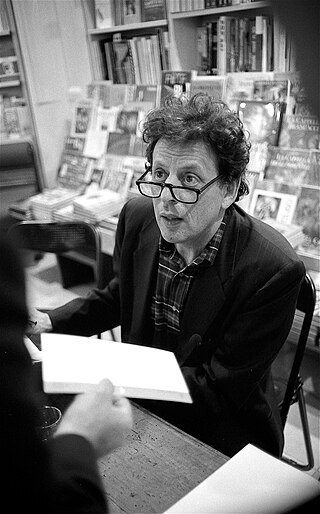
Philip Glass is an American composer and pianist. He is widely regarded as one of the most influential composers of the late 20th century. Glass's work has been associated with minimalism, being built up from repetitive phrases and shifting layers. Glass describes himself as a composer of "music with repetitive structures", which he has helped evolve stylistically.
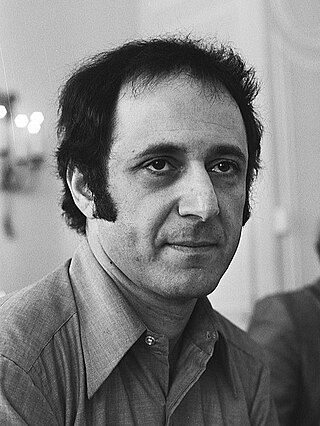
Stephen Michael Reich is an American composer known for his contribution to the development of minimal music in the mid to late 1960s. Reich's work is marked by its use of repetitive figures, slow harmonic rhythm, and canons. Reich describes this concept in his essay, "Music as a Gradual Process", by stating, "I am interested in perceptible processes. I want to be able to hear the process happening throughout the sounding music." To do so, his music employs the technique of phase shifting, in which a phrase is slightly altered over time, in a flow that is clearly perceptible to the listener.

Recitative is a style of delivery in which a singer is allowed to adopt the rhythms and delivery of ordinary speech. Recitative does not repeat lines as formally composed songs do. It resembles sung ordinary speech more than a formal musical composition.
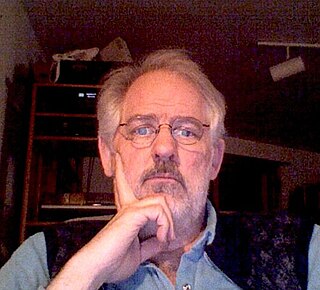
Kyle Eugene Gann is an American composer, professor of music, critic, analyst, and musicologist who has worked primarily in the New York City area. As a music critic for The Village Voice and other publications, he has supported progressive music, including such "downtown" movements as postminimalism and totalism.
Michael Torke is an American composer who writes music influenced by jazz and minimalism.
Minimal music is a form of art music or other compositional practice that employs limited or minimal musical materials. Prominent features of minimalist music include repetitive patterns or pulses, steady drones, consonant harmony, and reiteration of musical phrases or smaller units. It may include features such as phase shifting, resulting in what is termed phase music, or process techniques that follow strict rules, usually described as process music. The approach is marked by a non-narrative, non-teleological, and non-representational approach, and calls attention to the activity of listening by focusing on the internal processes of the music.

Rodion Konstantinovich Shchedrin is a Soviet and Russian composer and pianist, winner of USSR State Prize (1972), the Lenin Prize (1984), and the State Prize of the Russian Federation (1992), and is a former member of the Inter-regional Deputies Group (1989–1991). He is also a citizen of Lithuania and Spain.

Albert William Ketèlbey was an English composer, conductor and pianist, best known for his short pieces of light orchestral music. He was born in Birmingham and moved to London in 1889 to study at Trinity College of Music. After a brilliant studentship he did not pursue the classical career predicted for him, becoming musical director of the Vaudeville Theatre before gaining fame as a composer of light music and as a conductor of his own works.

John Nicholas Maw was a British composer. Among his works are the operas The Rising of the Moon (1970) and Sophie's Choice (2002).
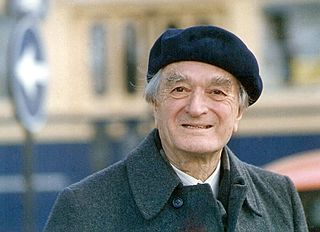
Ahmet Adnan Saygun was a Turkish composer, musicologist and writer on music.
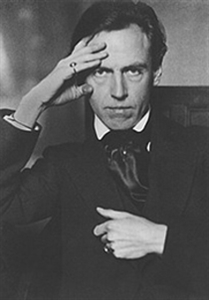
Cyril Meir Scott was an English composer, writer, poet, and occultist. He created around four hundred musical compositions including piano, violin, cello concertos, symphonies, and operas. He also wrote around 20 pamphlets and books on occult topics and natural health.
Julian Anderson is a British composer and teacher of composition.
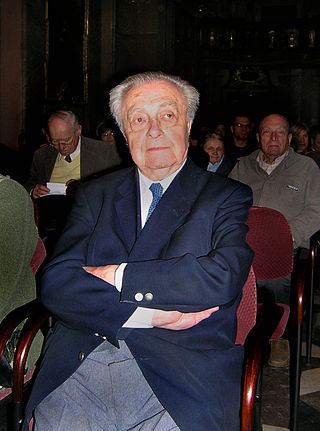
Ilja Hurník was a Czech composer and essayist.
David Wynne was a prolific Welsh composer, who taught for many years at Cardiff University and wrote much of his best-known music in retirement.
Dan Welcher is an American composer, conductor, and music educator.

Serenada Schizophrana is a suite of six symphonic movements written by American film composer Danny Elfman in 2004. It was commissioned by the American Composers Orchestra, which premiered the work at Carnegie Hall in New York City on February 23, 2005, conducted by Stephen Sloane. A studio recording was released on October 3, 2006, with John Mauceri conducting the Hollywood Studio Symphony orchestra. Album art was done by George Condo.
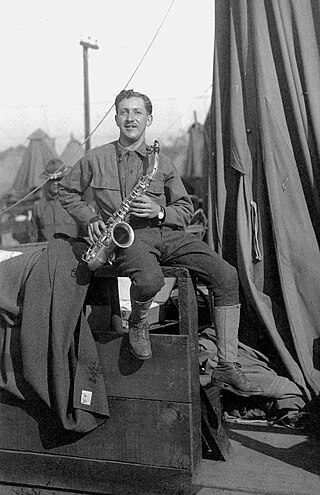
Frederick Jacobi was a Jewish-American composer and teacher. His works include symphonies, concerti, chamber music, works for solo piano and for solo organ, lieder, and one opera.

Matthew King is a British composer, pianist and educator. His works include opera, piano and chamber music, and choral and orchestral pieces. He has been described by Judith Weir, Master of the Queen’s Music, as “one of Britain's most adventurous composers, utterly skilled, imaginative and resourceful."

Victor-Alphonse Duvernoy was a French pianist and composer.